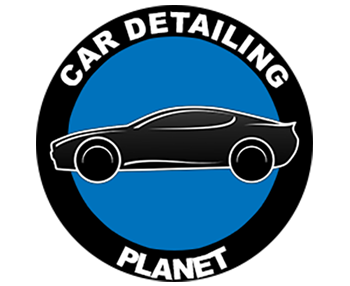Is Ceramic Coating Worth Your Money? Should You Get It?
Car Detailing Planet is a part of Amazon Associates. As an Amazon Associate, we earn from qualifying purchases. Read our Affiliate Disclosure to learn more.

I’m sure that you’ve heard about ceramic coatings and their ultimate longevity and protection properties.
But since they cost so much more when compared to waxes and sealants, I understand when people doubt if ceramic coatings are worth the extra investment. I’ll try to answer that question in this post, so keep reading.
Key Takeaways:
- Ceramic coatings are worth the extra money they cost due to their fantastic hydrophobic properties and the longevity they offer.
- If you own a newer car, you should consider applying a ceramic coating to your car.
- You shouldn’t spend extra money on ceramic coatings on older vehicles that don’t have big value.
What Is Ceramic Coating?
A ceramic coating is a fluid polymer that bonds to a vehicle’s paint at an atomic level. Consequently, it adds an extra layer on top of your vehicle’s clear/transparent coat for added paint protection.
This attempts to shield your paint from different sources of damage, including soil, cruel climate conditions, acid from insects, UV rays, and acid rain.
Ceramic coatings can add to the gloss and paint shine that ordinarily lasts up to two years, if not longer.
Is Ceramic Coating Worth It?
Objectively, ceramic coating is worth it if you drive a car that’s worth at least $5000. For anything cheaper, I’d stick to waxes and sealants.
Of course, if you’re a car lover and you just adore your vehicle, why not protect it with some high-quality ceramic coating?
It all comes down to your budget, and if you have the budget for ceramic coating, I recommend applying it to your car.
Ceramic Coating Is For You If:
- You take care of your vehicles all the time, and you like to detail cars.
- You own an expensive car or a new car.
- You often travel with your car.
- You’re obsessed with the car’s shine and paint hydrophobicity.
- The money isn’t a problem.
Ceramic Coating Is Not For You If:
- You own an old and neglected vehicle.
- You don’t like cleaning and detailing cars.
- You’re on a tight budget.
Pros and Cons of Ceramic Coatings
Here are the main benefits and disadvantages of ceramic coatings:
Pros
Cons
The Cost of Ceramic Coating
The car preparation and ceramic coating application costs anywhere between $500 and $2000 in the USA.
Ceramic Coating itself as a product isn’t so expensive. For instance, the CarPro Cquartz 50ml Kit costs around $80, and it’s considered one of the best ceramic coatings out there.
It’s not so expensive, right? What is so expensive then?
Well, in order to apply a ceramic coating to your car, the car needs to be well-prepared.
Mostly, this is the process:
- Washing the car to get rid of dirt and dust.
- Car paint decontamination to remove any contaminants still sitting on the paint.
- Paint Correction (polishing, buffing) to remove any paint imperfections because the clear coat should be in perfect condition in order for the ceramic coating to bond to the surface.
- Applying the ceramic coating – takes a lot of time, effort, and knowledge.
So, now you see all the steps needed in order to get the high-quality ceramic coating application that will last longer and offer the best results. And doing all that work costs a lot of money.
Myths About Ceramic Coatings
People love to exaggerate the importance and protection properties of ceramic coatings, and I think that you should know some myths about ceramic coatings that aren’t true. That will help you make an informed decision on whether the ceramic coating is for you or not.
Wrap Up
I hope that I was able to explain ceramic coatings to you and that now you know if they’re worth it for your car or not. I don’t have a ceramic coating applied on my car because it’s pretty cheap, but my father-in-law has a ceramic coating applied on his Audi Q7, which is worth more than $50,000.
I also want to remind you that ceramic coatings aren’t only meant for car paint. There are dedicated coatings for wheels, glass, plastics, and even leather.
If you want to learn more about ceramic coatings, I suggest that you check one of my following articles:
